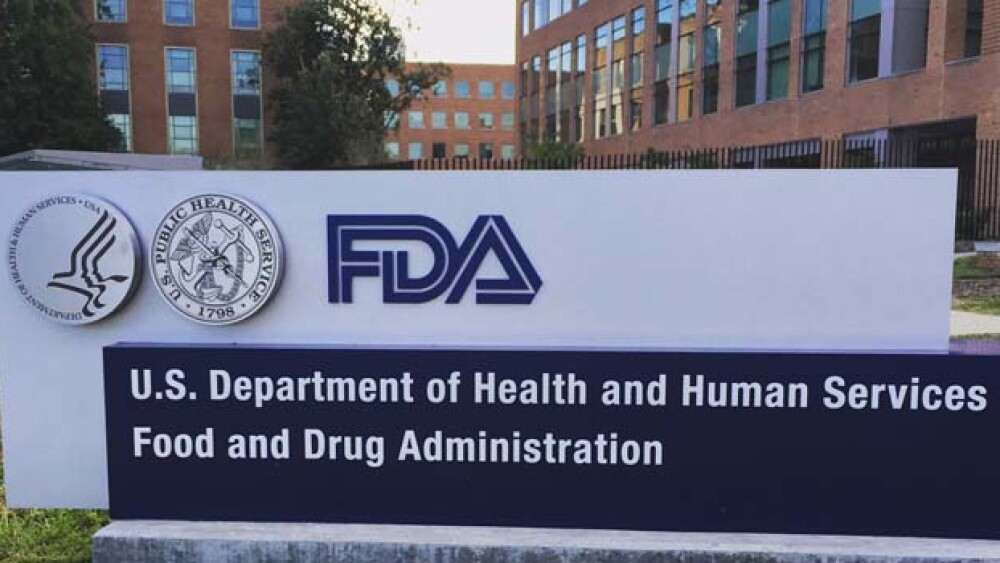In theory, the U.S. Food and Drug Administration (FDA) is tasked with overseeing the safety of food and drugs in the U.S. based on science, not politics. That doesn’t always work.
In theory, the U.S. Food and Drug Administration (FDA) is tasked with overseeing the safety of food and drugs in the U.S. based on science, not politics. That doesn’t always work. One example is from 2011, then then-FDA Commissioner Margaret Hamburg made a decision to allow birth control to be sold over the counter. Then-Department of Health and Human Services (HHS) Secretary Kathleen Sebelius overruled the decision. There are others.
Which is why, over the years—and more relevantly, yesterday—FDA commissioners have pushed to make the agency an independent entity, although there isn’t much agreement on how to make that happen.
Yesterday marked the publication of two different articles by former FDA commissioners calling for more agency independence. One was published in Health Affairs by seven former FDA commissioners, Robert M. Califf, Margaret Hamburg, Jane E. Henney, David A. Kessler, Mark McClellan, Andrew C. von Eschenbach, and Frank Young. The other is a white paper by the same seven individuals published by the Aspen Institute titled, “Context & Evidence: Why an Independent FDA?”
The basic argument is that as it is currently structured, politics interferes with the agency’s scientists’ ability to protect the health of the American public.
“This is really a plea to reduce the short-term political influence in favor of long-term policy,” Califf told STAT.
Among other things, it was noted that the current government shutdown affects the FDA as well. About 60 percent of the agency’s operations are continuing, while the remaining 40 percent of its personnel are furloughed and operations halted. As an example, they noted that the agency is not accepting any new drug applications.
Although changing the structure of the FDA, particular taking it out of HHS, has been in loose discussions since at least 2016, none of the authors think it will happen soon. Hamburg, who led the FDA from 2009 to 2015, told STAT, “I don’t think that there’s much appetite in this current environment to take this on, with everything else that’s swirling around.”
There is also no concrete plan anyone has agreed on. One option proposed was to make it a cabinet-level regulatory department similar to the Environmental Protection Agency. Another idea is it make it an independent agency like the Federal Trade Commission.
The current FDA commissioner, Scott Gottlieb, has set in place a movement towards a 52-person group within the agency called the Office of Drug Evaluation Science (ODES) that would create a standardized approach to using personalized medicine, digital data, and patient reporting to improve new drug reviews. But that’s a long way from creating an agency structure that would be less influenced by politics.
Andrew von Eschenbach was commissioner from 2006 to 2009 and he indicated at one time he was interested in the FDA being a cabinet-level organization. But others insisted that would be even more political, not less, although McClellan thought it would be better than the status quo.
All agreed that as it was now, too many HHS agencies had influence on FDA policy. Hamburg told STAT, “You get bogged down, also, in a way that’s frustrating, by individuals at different levels in the hierarchy of review not having the background and expertise.”
Or who simply have opinions, informed or otherwise, about various drugs or products. Hamburg said when she was commissioner, she fielded many phone calls from people in the White House who liked particular drugs and didn’t like that the agency recalled them.
The biopharmaceutical might be relieved to know that neither report addresses the influence of industry on the agency. Not that it likely matters. Sidney Wolfe, founder of Public Citizen, often critical of the FDA, told STAT, “Industry pressure is not going to relinquish itself or diminish.”
Perhaps. But with candidates already announcing their runs for President of the U.S. in 2020, with drug pricing and policy starting as a hot-button issue, the former commissioners’ timing might be right to make it a topic of nationwide discussion.





